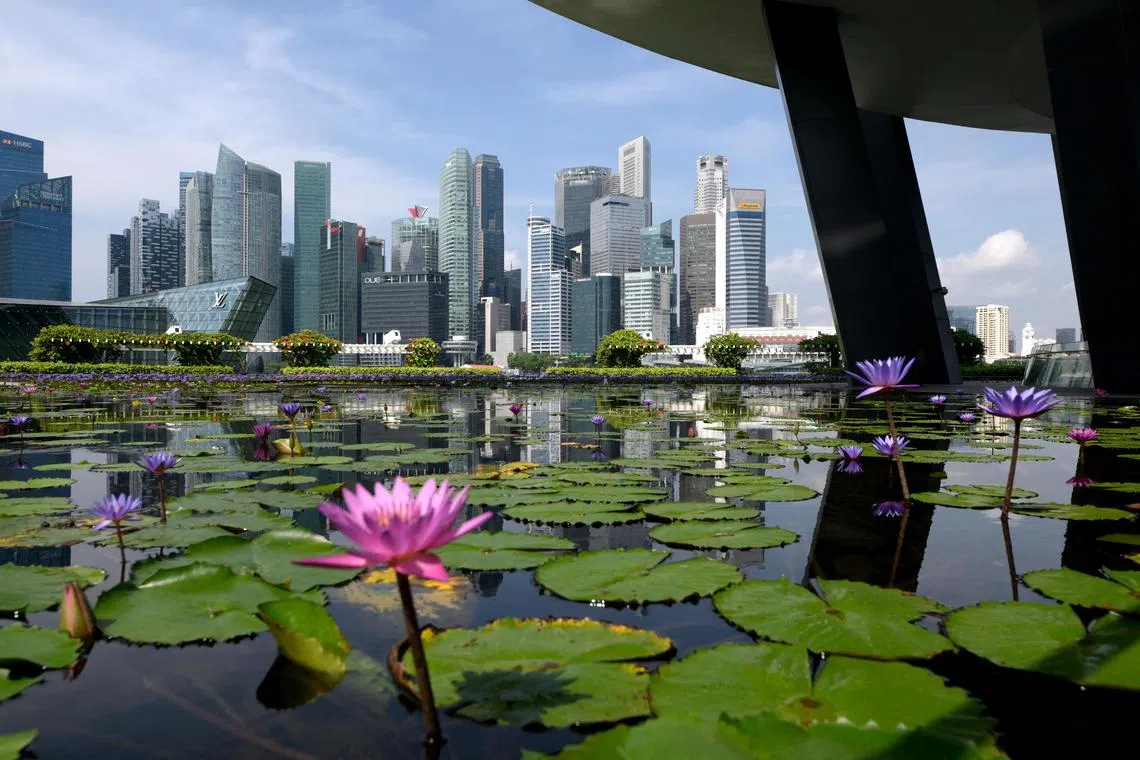Companies to report greenhouse gas emissions starting FY2025: SGX
Sign up now: Get ST's newsletters delivered to your inbox

SGX’s move reflects a growing emphasis on transparency and accountability in environmental impact, as well as the challenges in its reporting.
PHOTO: ST FILE
Follow topic:
SINGAPORE – Starting in the 2025 financial year, all listed companies will be required to report their greenhouse gas emissions, specifically in two areas.
The first area covers companies’ direct emissions that occur from sources owned or controlled by the organisation, such as the combustion of fossil fuels in company-owned vehicles, heating systems and industrial processes. These were identified as Scope 1 emissions in a Singapore Exchange (SGX) statement on Sept 23 announcing the move.
The second area – Scope 2 – is indirect emissions resulting from the generation of purchased electricity, steam, heating and cooling consumed by the company.
Additionally, businesses must incorporate the climate-related requirements in the International Financial Reporting Standards (IFRS) Sustainability Disclosure Standards issued by the International Sustainability Standards Board.
This initiative builds on prior recommendations from the task force recommending climate-related financial disclosures,
The shift to mandatory reporting signifies a broader commitment to ensuring that all companies – regardless of sector – are accountable for their environmental impact.
The intention is that they report all other emissions from FY2026, said SGX, which added that all listed companies “will be provided with ample notice before the effective date”.
SGX’s move reflects a growing emphasis on transparency and accountability in environmental impact, as well as the challenges in its reporting.
Despite a one-year waiver for the wider Scope 3 disclosures that cover all indirect emissions in the value chain, businesses – especially smaller firms – have raised difficulties in changing measurement and reporting methodologies for this class of emissions.
In acknowledgement, SGX said it will assess the readiness of firms before establishing a timeline for Scope 3 disclosures. Larger companies will be prioritised in reporting Scope 3 emissions starting from FY2026, allowing them sufficient time to prepare for compliance.
The Monetary Authority of Singapore said that these new rules will promote consistent sustainability-related disclosures among SGX-listed firms, enabling them to better navigate climate risks and tap emerging opportunities.
To give businesses time to focus on these new climate-related disclosures in FY2025, other components of sustainability reports will be mandated from FY2026.
This includes the requirement for companies that do not engage external assurance on their sustainability reports to issue them alongside their annual reports.
Those that do will have an extended deadline of up to five months after the end of their financial year to publish their sustainability reports. SGX is hoping that the extra lead time will encourage listed companies to conduct independent evaluations of their sustainability data.
Investors and industry leaders commended the move but asked companies to maintain efforts on the wider Scope 3 reporting.
Temasek International chief financial officer Png Chin Yee said: “Addressing Scope 3 emissions is critical for all stakeholders to move the economy towards net zero.”


